News
-
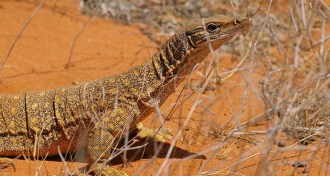 Anthropology
AnthropologyHunting boosts lizard numbers in Australian desert
Reptiles prefer to live in places aboriginal people have burned.
-
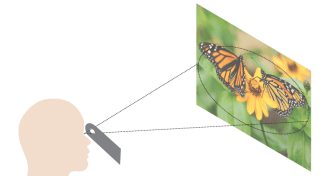 Neuroscience
Neuroscience3-D effects may require one eye only
Peering through a peephole can bring flat images to life.
-
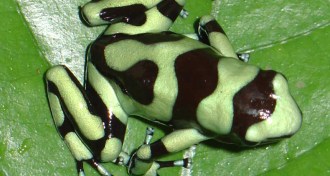 Animals
AnimalsAmphibian killer forces immune-cell suicides
Fungal menace to frogs and their kin shuts down key parts of the animals’ defenses.
By Susan Milius -
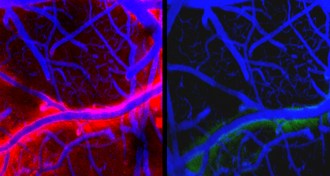 Neuroscience
NeuroscienceSleep allows brain to wash out junk
Discovery of fluids flowing in mice while they slumber could lead to better treatments for Alzheimer’s disease.
-
 Anthropology
AnthropologyFossil skull points to single root for human evolution
New find suggests that humankind’s origins trace to an ancient species that spread from Africa to Asia.
By Bruce Bower -
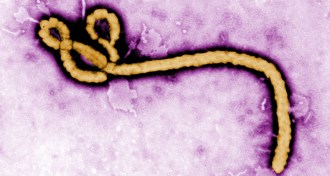 Health & Medicine
Health & MedicineHopes raised for Ebola treatment
Most monkeys given dual therapy survive infection with lethal virus.
By Nathan Seppa -
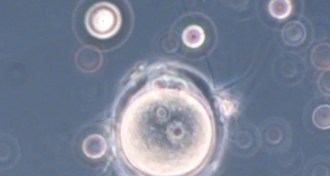 Animals
AnimalsLurking males lead to hard-to-fertilize mouse eggs
Mixed-sex society raises resistance to sperm in what may be a long-running arms race between the sexes over fertilization.
By Susan Milius -
 Physics
PhysicsNew limit placed on physics constant
An analysis of how much the fine structure constant varies with the density of matter may help scientists determine whether the parameter changes with time.
-
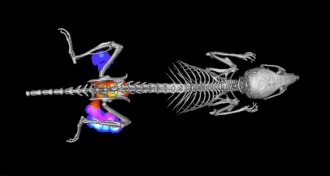 Life
LifeFlashy drug spotlights infection
Doctors may be able to watch for invading microbes with a fluorescent antibiotic.
By Beth Mole -
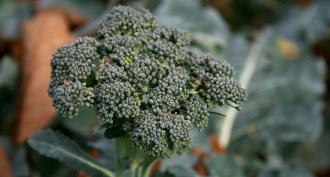 Life
LifeBroccoli compound protects rats from lethal radiation
Treatment shields healthy cells from gamma ray attack but lets tumors die.
-
 Health & Medicine
Health & MedicineElectrodes dupe brain into feeling touch
Stimulating the right neuron at the right time gave monkeys the sensation of contact.
-
 Anthropology
AnthropologyAncient farmers, foragers kept genes to themselves
Ancient DNA and diet clues suggest how farmers and hunter-gathers contributed to modern Europeans’ genetic profiles.
By Bruce Bower